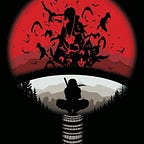Housing Market's $45 Trillion Quagmire: The Perilous Resurgence of Zero-Down Mortgages.
The U.S. housing market, valued at a staggering $45 trillion, is a complex combination of economic trends and a strong cultural emphasis on homeownership. This intricate landscape faces pressing issues, notably the need for affordable housing and concerns over Wall Street's increasing involvement as landlords, profiting from renters at the expense of their opportunity to build equity. These complexities are further challenged by policymakers trying to find solutions, particularly with the reintroduction of zero-down mortgages, which risk complicating the situation similar to past financial crises.
Zero-Down Mortgages.
A Warning from the Past
United Wholesale Mortgage, a leading mortgage lender in the country, recently brought back a program that allows first-time buyers to purchase homes without any initial down payment. While this seems attractive, it echoes the risky financial practices that led to the 2008 housing crisis.
This program offers borrowers a 3% interest-free loan for the home's value, capped at $15,000, with the rest financed through a standard mortgage. However, this loan comes with strings attached: it must be repaid when the homeowner sells the property, refinances, or pays off the mortgage — a significant financial burden if the market takes a downturn, potentially leaving homeowners owing more than their house is worth.
Potential Pitfalls
The dangers of this scheme are multi-faceted:
1. Market Risks.
A dip in the housing market could lead to negative equity, mirroring the subprime mortgage crisis.
2. Economic Hardship.
Financial difficulties might force homeowners to sell prematurely, necessitating the immediate repayment of the loan, possibly resulting in defaults if the property's value hasn't risen.
3. Long-Term Financial Pressure.
Maintenance and unexpected repairs can create constant financial stress, making it difficult for homeowners to save enough to repay the $15,000 loan.
This program resembles the subprime crisis, signaling the potential for history to repeat itself.
United Wholesale Mortgage's Response.
United Wholesale Mortgage defends its program, pointing to strict underwriting practices and improved lending standards, suggesting a more responsible approach than in the pre-crisis era. They argue that critics need an understanding of the current safeguards in the mortgage industry. However, the program's critics maintain that easing borrowing for individuals without significant savings can be harmful, particularly in challenging economic conditions.
Alternative Financing Options in a Tight Market.
With current mortgage rates around 7% and low housing inventory, buyers and sellers are exploring other options, such as assumable mortgages. These arrangements allow buyers to inherit the seller's loan, usually at a lower interest rate, offering considerable savings despite applying to a limited number of mortgages.
For example, a software analyst, Ellen Harper, took advantage of such a mortgage in Fairburn, Georgia, securing an interest rate of 2.49% — significantly lower than the prevailing rate — saving her thousands in monthly payments.
In Conclusion.
The revival of zero-down mortgages highlights ongoing challenges in the U.S. housing market. While some buyers find relief through creative financing options like assumable mortgages, reintroducing risky financial products necessitates careful oversight to avoid repeating the mistakes of the subprime mortgage crisis. Both policymakers and financial institutions must focus on sustainable and equitable housing solutions.
source: https://edition.cnn.com/2024/05/30/business/zero-down-mortgages-making-a-comeback/index.html
